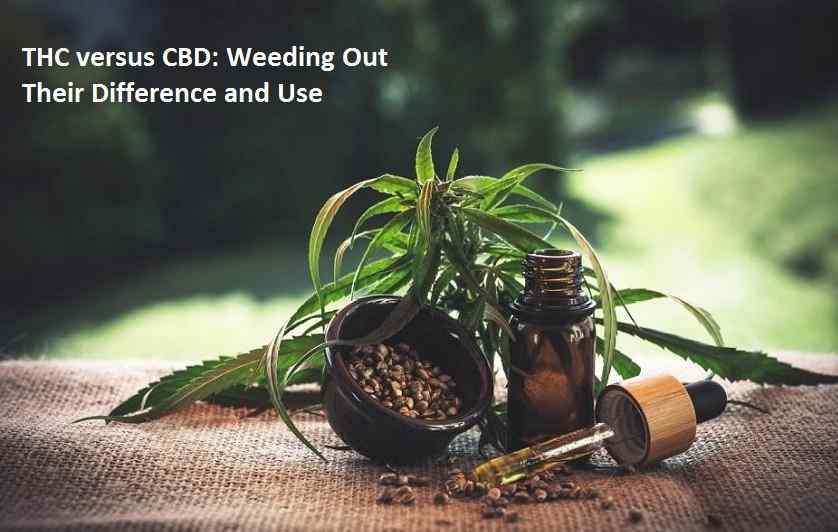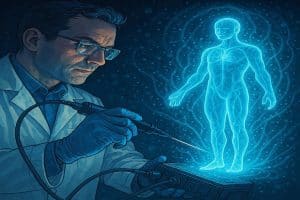
The legal grip on marijuana use, along with other cannabis-related products, is continuing to loosen. More and more consumers are becoming curious and looking at potential buying options. This includes tetrahydrocannabinol (THC) and cannabidiol (CBD), two chemical compounds obtained from cannabis plants.
CBD is a “milder” form of THC that doesn’t give the typical high you get from a cannabis product. It can be obtained from both marijuana and hemp plants. CBD comes in many forms—extracts, oils, gummies, supplements, and gels, to name a few.

THC, on the other hand, gives a stronger sensation and is typically consumed through smoking marijuana. It can also be ingested through edibles, oils, tinctures, and many more.
While both of these two compounds affect the body’s endocannabinoid system with varying effects, these compounds have key differences that change how they’re used. If you want to learn more about those, you’re in the right place.
Table of Contents
Psychoactive Potential
As mentioned before, THC and CBD don’t induce equal psychoactive effects. Contrary to what many believe, CBD is actually nonpsychoactive. This means that it doesn’t make you feel high when you consume CBD.
THC has psychoactive potential because it can bind with cannabinoid 1 receptors in the brain, which creates a euphoric emotion. CBD has lesser binding power than THC does. Oddly enough, consuming CBD can actually interfere with THC’s effects, instead of having a synergistic quality.
Legal Issues
In the US, cannabis laws are ever-shifting; each state has different rules and regulations. Many of the fifty states are starting to realize the potential of cannabis as a medical supplement, which allows the use of these products with the approval of a doctor.
In more liberal states, they’ve already legalized recreational marijuana use, so one can purchase cannabis products in these states freely. Before deciding to buy a THC or CBD product (buy at OrganicCBDnugs), it’s important to read up on state laws. Otherwise, one may face legal repercussions in the future.
Drug-Testing Viability
Cannabinoids are stored inside the body’s fat reserves. Their presence is long-lasting and can turn up positive in drug tests for many days or even weeks after their consumption.
Not all drug tests can detect CBD. However, there are specialized tests available. Many standard tests will detect chemicals connected to THC, so people consuming this form of cannabis may want to get detoxified to lessen the chances of failing a drug test.
Health Benefits
THC and CBD give similar health benefits. Both provide relief for many medical conditions. CBD is typically used to treat insomnia and anxiety-related issues because of its calming properties. THC, on the other hand, can be used to dampen pain and lessen muscle spasms.
In June last year, the FDA-approved Epidiolex. This is the first-ever prescription medication with a CBD component. It’s often prescribed to patients with rare variants of epilepsy that are aggressive and hard to control.
CBD can be used to treat these conditions:
- Glaucoma
- Pain
- Low appetite
- Muscle spasticity
- Insomnia
- Anxiety
- Nausea
THC can be used to treat these conditions:
- Inflammation
- Seizures
- Mental disorders
- Pain
- Nausea
- Depression
- Inflammatory diseases
- Anxiety
- Migraines
Negative Effects
CBD is often well tolerated by the body, even when consuming larger doses. However, there are a few cases when it can give similar effects that THC has.
Also Read: How CBD Oil Is Helpful For Back Pain Does It Really Effective
THC can cause these negative effects:
- Higher heart rate
- Dry mouth
- Lack of coordination
- Red eyes
- Memory loss
- Hampered reaction time
These effects are caused by the psychoactive properties of the compound. Fortunately, none of these compounds are lethal in a majority of cases. Do take care when trying cannabis products when you’re under medications, and consult your physician beforehand.
Also, be aware of the potential long-term effects of THC, especially on adolescents, because their bodies are yet to develop fully. THC’s effect on a teen is much more severe, and it’s often related to an increased risk in a few psychiatric disorders, like schizophrenia.
Conclusion
Both THC and CBD have the potential for medical use. Both are generally safe for consumption, but there is a possibility of incurring a few side effects. It’s always best to consult with a doctor before trying out these either or both.


